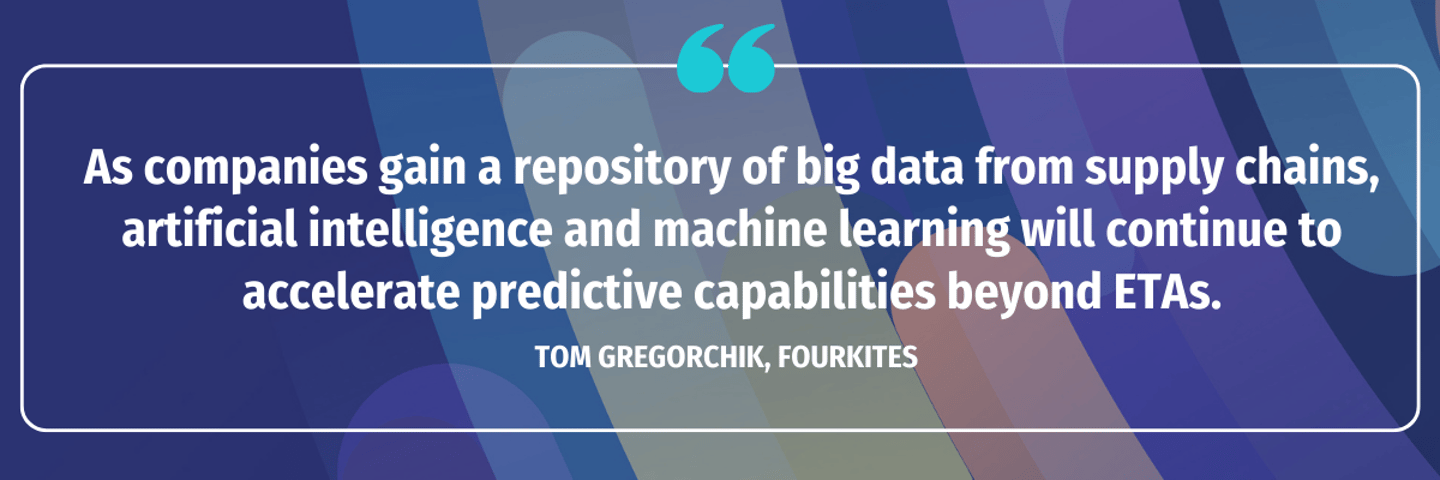How Does New Technology Impact Supply Chain?
Technology can serve as a transformative catalyst for supply chain operations in today’s consumer goods industry. Whether it's data-driven predictive capabilities or seamless system integration, technology in logistics and supply chain management can offer the promise of more resilient, efficient, and transparent operations.
Success, however, hinges upon a cohesive and strategic approach and adequate investment.
How technology is shaping the future of supply chain
When looking at how supply chain technology trends are helping improve consumer goods operations in a meaningful way, Tom Madrecki, VP of supply chain at Consumer Brands Association, is loath to recap buzzwords like AI, automation, visibility, or traceability.
“A strategic and collective approach to integrating such technologies is what will yield success in the ongoing effort to combat supply chain challenges,” he stresses. “With the drastic improvements we’ve already seen implemented since the pandemic, I’m confident that bigger technological strides are on the horizon.”
What are some ways in which technology has impacted logistics management?
The importance of technology in supply chain management isn’t new. Tom Gregorchik, VP of industry strategy at FourKites, says that digitization has been at the forefront of the logistics management revolution since the 1990s, if not earlier.
New technology in supply chain management and logistics today remains focused on optimization, visibility, and integration. With optimization, such as what’s found with a transportation management system, companies can identify ways to consolidate orders, thus potentially reducing the number of inbound trailers or containers to a location.
Real-time visibility, meanwhile, has evolved from tracking and tracing trucks and containers to providing insights into inventory levels, shipment status, and even potential disruptions. “As companies gain a repository of big data from supply chains, artificial intelligence, and machine learning will continue to accelerate predictive capabilities beyond ETAs,” says Gregorchik.
System integration in turn is what ties together the various pieces of supply chain digitization. Instead of operating a hodgepodge of systems independently, companies have the ability to seamlessly pass information across their enterprise resource planning systems (ERPs), transportation management systems, order management systems, and more.
What are the future technologies in supply chain and logistics?
The impact of digital technology on supply chain management is vast. Cloud-based supply chain solutions that can manage inventory across warehouse locations are helping consumer goods companies quickly adapt to changes in supply and demand, according to Sourav Banerjee, Infosys SVP and industry head, consumer retail and logistics.
“Aggregating large data from varying sources into a single platform with modern cloud supply chain technologies grants businesses the ability to make well-informed supply chain decisions and monitor customer demand and inventory.”
The technologies that can aid with this process include IoT devices like sensors and RFID tags, which can track the location, condition, and status of goods in real-time. Artificial intelligence and predictive analytics can quickly process data stores to optimize supply chain operations, while digital twins can simulate potential problems to improve collaboration and proactively head off disruption.
“These technologies collectively enable supply chain stakeholders to achieve greater visibility, optimize processes, respond to disruptions more effectively, and provide better customer experiences,” notes Banerjee. “However, successful implementation requires a thoughtful strategy, investment in technology infrastructure, and collaboration among partners in the supply chain ecosystem.”




